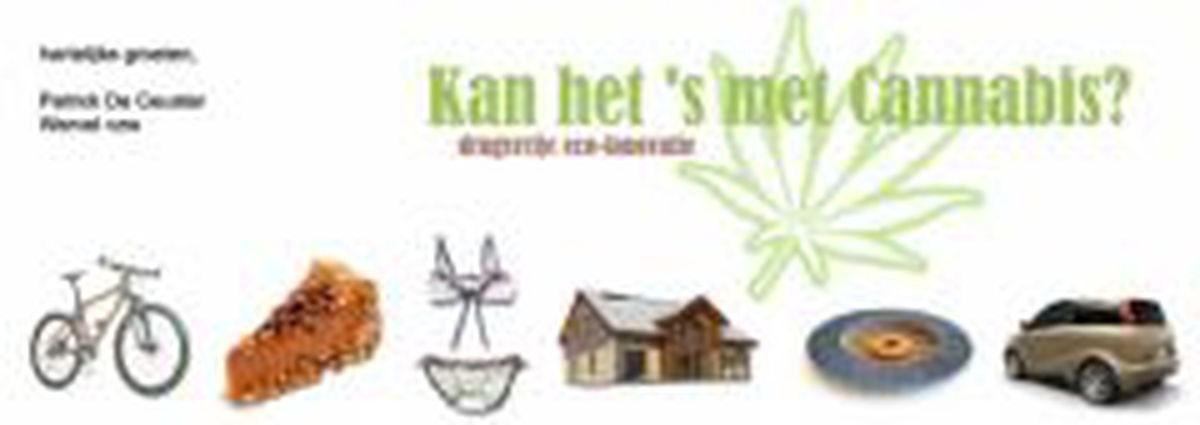
Hemp for Sustainable Agriculture
Published on
By Désirée Ketabchi translated by Danica Jorden
The use of hemp in the Belgian agricultural industry has been legal since May 2011. Many products can be made from hemp: plastic, clothing, construction materials, tea, biscuits, oil, beer and others. The reason it has been illegal rests in the confusion often made between industrial hemp and Indian hemp, better known as cannabis.
They are part of the same family, but they are not the same plant.
The most important difference, however, resides in the almost total absence of the psychotropic substance THC in industrial hemp. Patrick de Ceuster, of the non-profit Wervel (‘’vertebra’’), whose goal is sustainable agriculture, explains that the quantity of THC in the type of hemp used in the agricultural industry is 5 mg/kg. Regularly inspected, European rules require food packaging to show an absence of THC.
The Brussels-based Wervel association launched a campaign called ‘’Kan het’s met cannabis’’ (‘’What Agrees with Cannabis’’) to promote the use of hemp but above all to introduce these products to consumers. ‘’Goods made from hemp have many advantages, but unfortunately consumers don’t buy many because they ‘re not familiar with them,’’ explains Patrick. ‘’It’s important to note that raising hemp is ecological because it doesn’t require any pesticides,’’ he adds.
The Brussels association’s campaign doesn’t only include food products. They’ve also held a fashion show of clothing made from hemp-derived fabrics. Next spring there will be another show, this time with professional models. ‘’There is only one store in Brussels that sells these clothes,’’ Patrick comments. ‘’There is still a lot of work to be done to promote these products, not just to consumers but also businesses and companies.’’
The house of the future will be made of hemp
Perhaps the most interesting of these products are construction materials, which can be used to make ecological houses. In fact, materials made from hemp offer a high degree of insulation, translating into less heat loss and heating and cooling savings. Furthermore, as plants use CO2, buildings made from hemp store CO2, while most construction materials emit it.
Belgium is not the most advanced country in this area. Canada, for example, wants to start production on an electric car with a hemp fibre chassis, making the vehicle lighter weight.
Hemp obviously has many advantages: it is grown without pesticides, plastics made from it are very strong and the food, as Patrick says with a smile, ‘’is just plain healthier.’’



